Easy Alphabet worksheets activities for Ages 5-7
6 filtered results
-
From - To
Welcome to our Easy Alphabet Worksheets for Ages 5-7! Designed to make learning letters engaging and fun, these activities help young learners master the alphabet through a variety of colorful and interactive worksheets. Children will explore letter recognition, phonetics, and writing skills with ease. Our user-friendly worksheets offer valuable practice in tracing letters, identifying initial sounds, and matching uppercase with lowercase letters. Perfect for homeschooling or classroom use, these resources support early literacy development at a comfortable pace. Join us in fostering a love for reading and writing as children embark on their educational journey with our thoughtfully crafted activities!
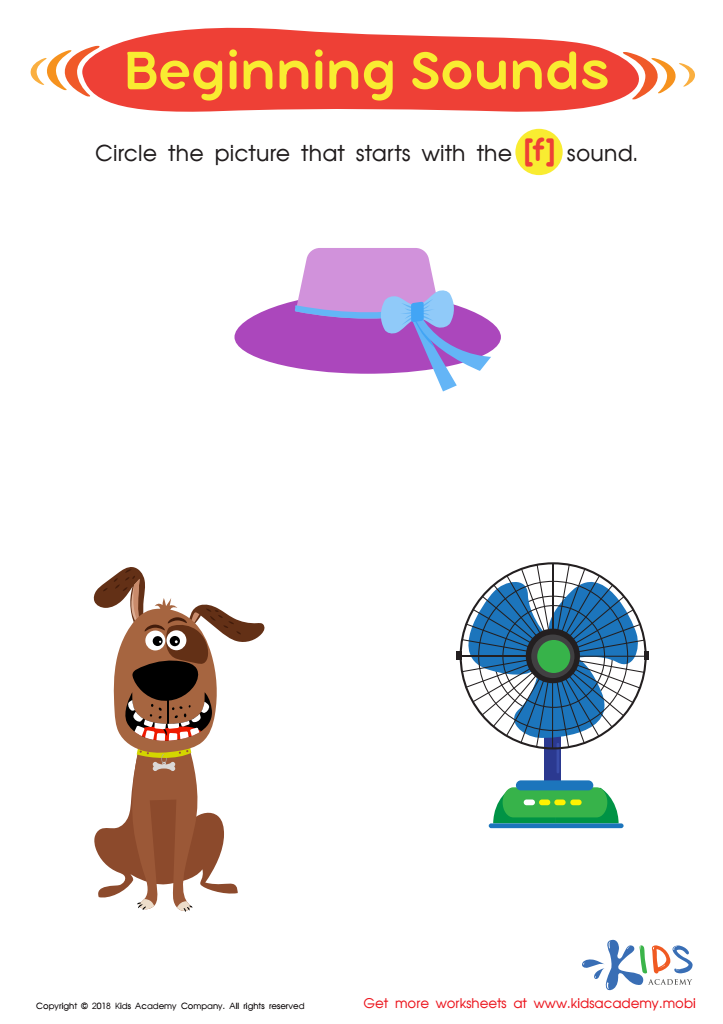

Beginning Sounds Assessment Printable
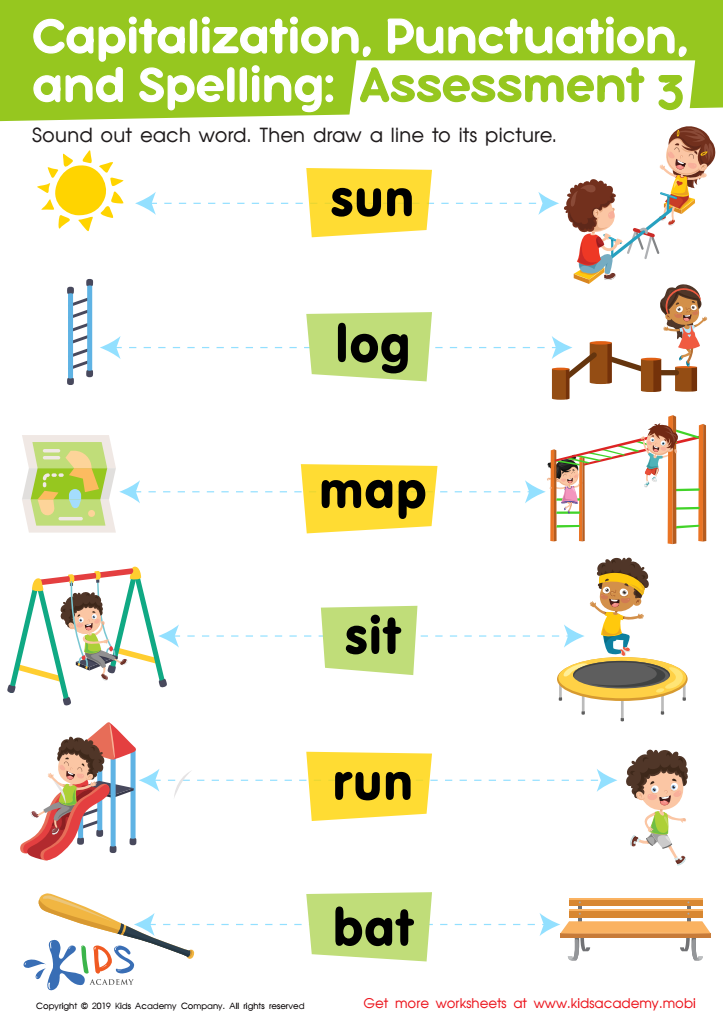

Capitalization. Punctuation. Spelling. Assessment 3 Worksheet
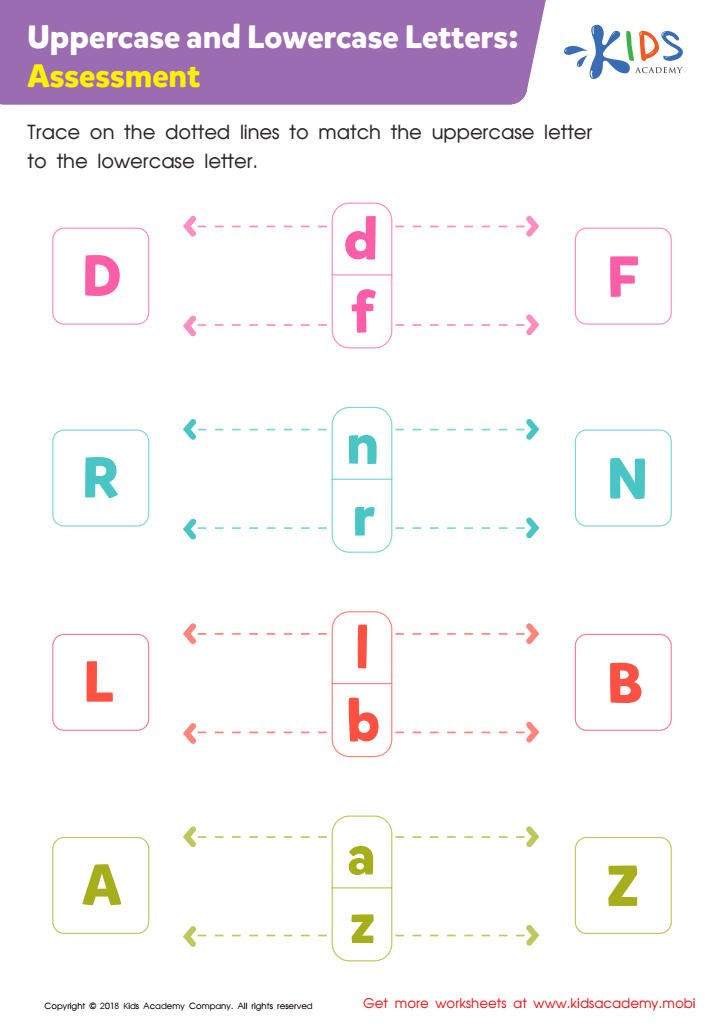

Uppercase and Lowercase Letters: Assessment Worksheet
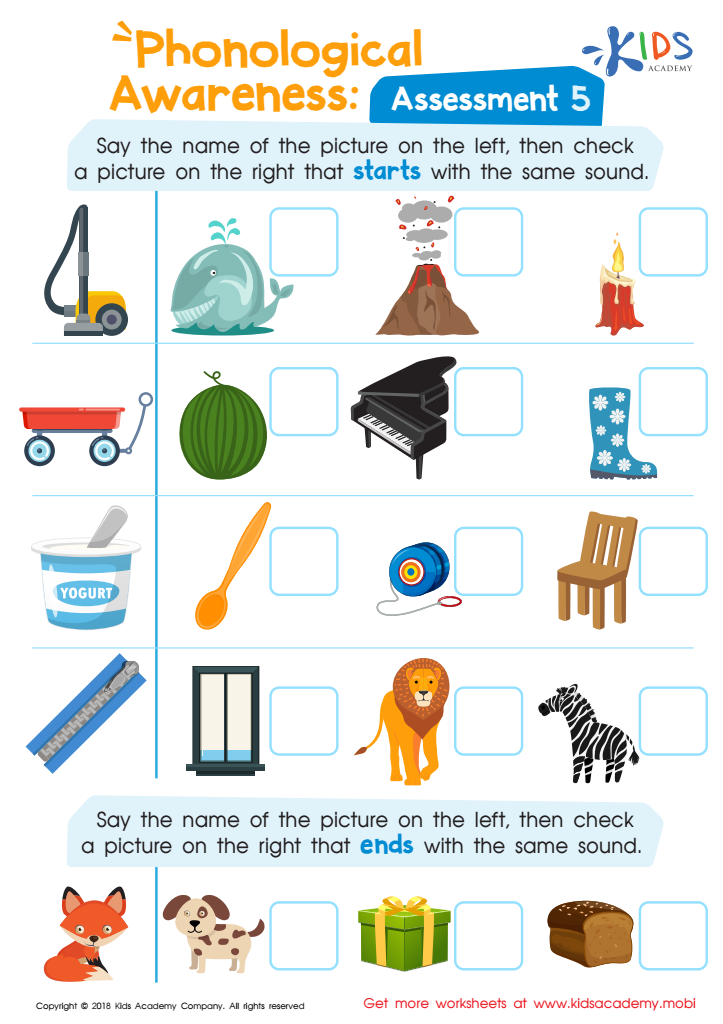

Phonological Awareness: Assessment 5 Worksheet


Phonics and Word Recognition: Assessment 1 Worksheet
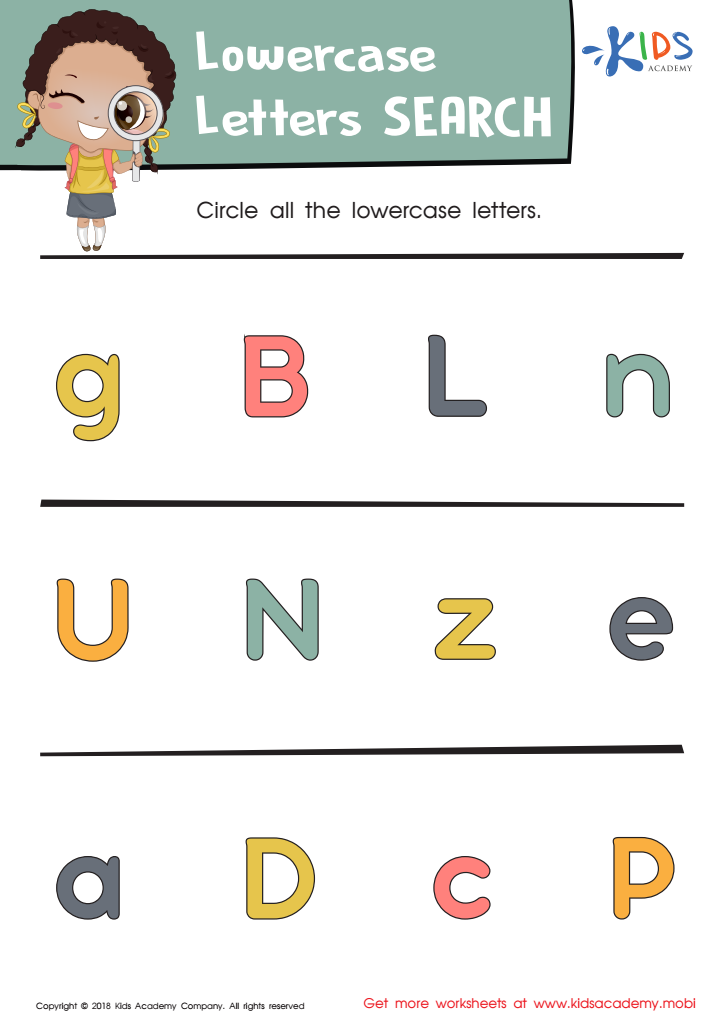

Lowercase Letters Search: Assessment Worksheet
Parents and teachers should care about Easy Alphabet activities for ages 5-7 because these foundational activities play a critical role in literacy development. During this crucial stage, children are usually beginning to recognize letters and their corresponding sounds, which is essential for reading and writing proficiency. Engaging in activities that make learning the alphabet enjoyable helps to foster a love for reading that can last a lifetime.
Easy Alphabet activities are designed to be interactive and fun, often incorporating games, songs, and crafts that appeal to young learners. This engagement not only makes learning playful but also caters to different learning styles—visual, auditory, and kinesthetic. Encouraging joyful participation promotes motivation and helps solidify letter recognition and phonemic awareness.
Moreover, these activities can improve fine motor skills, enhance cognitive development, and build social skills when done in group settings. They also set the stage for more complex literacy concepts, boosting confidence during the critical learning years. Ultimately, a strong foundation in the alphabet can lead to greater academic success, ensuring that children are better prepared for their future educational journeys. Hence, parents and teachers’ investment in these activities is vital for comprehensive learning experiences.
 Assign to My Students
Assign to My Students














